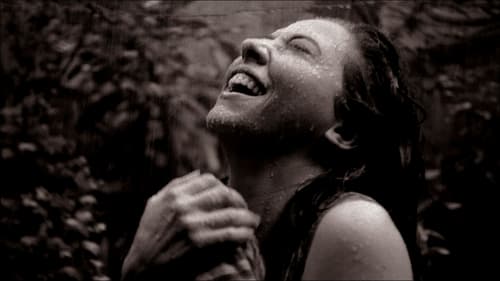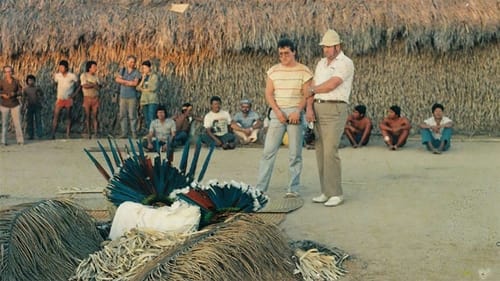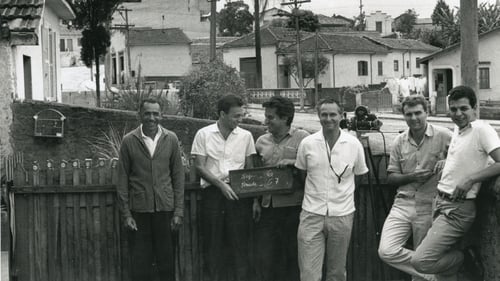Geraldo Sarno
Birth : 1938-03-06, Poções, Bahia, Brazil
Death : 2022-02-22

Editor
When bandits take the town of Sertânia, Antão gets shot, arrested, and left to die. Bleeding out, Antão's delirious mind begins to recall the events that led up to the incident through a sequence of increasingly unreliable fever dreams.

Screenplay
When bandits take the town of Sertânia, Antão gets shot, arrested, and left to die. Bleeding out, Antão's delirious mind begins to recall the events that led up to the incident through a sequence of increasingly unreliable fever dreams.

Director
When bandits take the town of Sertânia, Antão gets shot, arrested, and left to die. Bleeding out, Antão's delirious mind begins to recall the events that led up to the incident through a sequence of increasingly unreliable fever dreams.

Editor

Writer

Director

Self - Filmmaker (archive footage)
A deep investigation, in the way of a poetic essay, on one of the main Latin American movements in cinema, analyzed via the thoughts of its main authors, who invented, in the early 1960s, a new way of making movies in Brazil, with a political attitude, always near to people's problems, that combined art and revolution.

Director

Ele mesmo

Writer
Documentary about the reminiscence of Balzac's works, spiritually and scientifically the documentary shows the strenght of this important work of French literature through the years.

Director
Documentary about the reminiscence of Balzac's works, spiritually and scientifically the documentary shows the strenght of this important work of French literature through the years.

Himself

Writer

Director

himself

Documentary on "Antonio das Mortes", Glauber Rocha's 1969 film.

The documentary "Depois do Transe" covers the entire process of creating the masterpiece "Entranced Earth", which was released and awarded at the Cannes Film Festival in 1967. "Entranced Earth" charmed the world and won great admirers such as filmmaker Martim Scorsese and the writer Marguerite Duras, who at the time considered a "fabulous filmic opera."

Director
Documentary about the film director Ana Carolina.

Director

Director

Writer

Director

Director

Screenplay
In the beginning of the 20th Century, in the Northeast of Brazil, one of the first Brazilian industrialists is persecuted because he refuses to sell his business to a British company.

Director
In the beginning of the 20th Century, in the Northeast of Brazil, one of the first Brazilian industrialists is persecuted because he refuses to sell his business to a British company.

Producer

Cinematography

Writer

Director

Director

Director
Short documentary film about the afrobrazilian religion Candomblé.

Director

Writer

Director

Editor

Director

Director

Screenplay
The process of production of rapadura in the Brazilian state of Ceará.

Director
The process of production of rapadura in the Brazilian state of Ceará.

Director
Documentation of the production of cassava flour, a basic component in northeastern Brazilian food.

Editor
The confrontations and conflicts between the city of Padre Cicero's pilgrims and the attempts to develop the region.

Director

Writer
The confrontations and conflicts between the city of Padre Cicero's pilgrims and the attempts to develop the region.

Director
The confrontations and conflicts between the city of Padre Cicero's pilgrims and the attempts to develop the region.

Director
In May 1969 at Tres Irmãos Farm, Caruaru, PE: Lourival Batista and Severino Pinto, two singers by profession, meet for a challenge. This film documents some moments of the Cantoria.

Director

Director of Photography

Editor

Researcher

Director

Director

Director
In the late 1960s, Thomas Farkas imported equipment suitable for direct sound, and released a collection of documentaries called "Brasil Verdade" ("True Brazil"), after the Military Coup d'État took place in Brazil, which happened without any popular resistance or revolution or reaction of the society. The five short films are directly related to this fact and its consequences to the country.

Editor

Producer
In the village of Leva-e-Traz, the discovery of a oil field is responsible for a mass evasion of the townspeople. Left are the old and incapable for the extraction job. When the local priest announces he, too, is leaving the town, Satan emerge thrilled with the chance of overtaking the place.

Writer

Director

Writer
A Brazilian film, inspired by local publications known as literatura de cordel, that chronicled political, social and cultural events, as well as containing folk tales.

Writer
Viramundo shows the saga of the northeastern migrants that arrive in São Paulo, beginning with a train arriving and ending with a train leaving São Paulo in a cycle repeated every day. Viramundo's aim was to question why the military coup d'état in Brazil happened without any popular resistance or revolution or reaction of the society.

Director
Viramundo shows the saga of the northeastern migrants that arrive in São Paulo, beginning with a train arriving and ending with a train leaving São Paulo in a cycle repeated every day. Viramundo's aim was to question why the military coup d'état in Brazil happened without any popular resistance or revolution or reaction of the society.


















